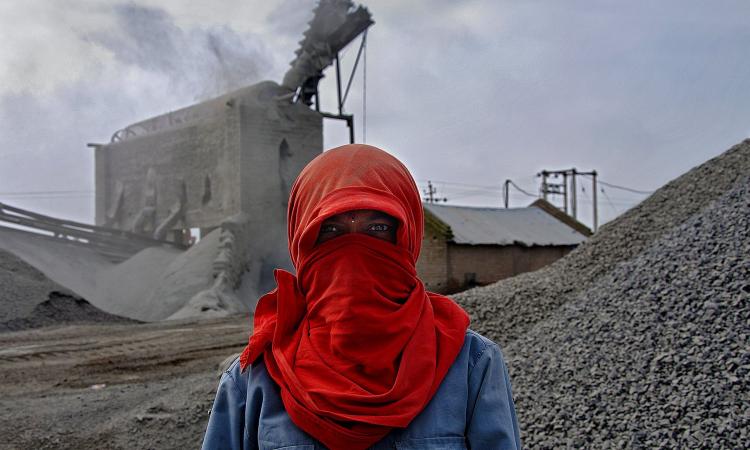
Suddenly thrown out of work by a nationwide lockdown, the migrants who built our cities and our economies were forced to take the torturous walk away from the cities to their homes in rural India. As per the findings of a recent survey by the Impact and Policy Research Institute (IMPRI), New Delhi a new urban agenda focusing on dynamic urban planning processes and empowering the city governments is looked-for. The study points to the need for plugging the gaps instead of offering a hodgepodge of half-measures. It is essential to expand the public assistance programs for the citymakers, so they occupy their rightful place in the scheme of things.
The headcount telephonic-survey was conducted from 7th May to 17th May 2020 by interviewing 3121 households across 50+ cities in the country. A webinar to discuss the findings of the study held on May 27, 2020 was attended by more than 500 participants from different parts of the world.
Study findings
- 8 out of 10 casual daily wage labourers and 6 out of 10 salaried workers reported loss of employment during lockdown due to closure of business or construction activities and inability to visit their workplaces.
- 6 out of 10 respondents reported that lack of awareness and congestion are the major constraints in ensuring social distancing and hygiene practices during the pandemic.
- Coverage of different government’s schemes is far from becoming universal and lack of awareness and eligibility are the two major impediments.
- Many respondents reported that they are not eligible for the programmes introduced by the government.
- More than 50 percent of the respondents are worried about earning a livelihood or of losing work and are anxious about how they would feed their families and themselves.
- About 6 out of 10 respondents demanded free ration after the lockdown ends.
- 8 out of 10 respondents believe that they will resume their work after the lockdown. This indicates that the current livelihood loss is a temporary phenomenon. However, this will depend to a large extent on how the government, businesses and people respond.
Key policy takeaways
- Local periodic data are essential for the pandemic preparedness and response;
- New urban agenda focusing on dynamic urban planning processes and empowering the city governments;
- An urban job assurance programme as a longer-term policy option to address the looming economic crisis;
- Plugging the gaps and expanding the public assistance programs;
- Rights of the citymakers to the city.
“We need an extremely localised solution for catering to the needs of the citymakers who comprise over 140 million citizens,” said Prof. Wendy Olsen, University of Manchester, United Kingdom speaking at the webinar.
She highlighted the need for free ration, advance wages and assured food supply to alleviate the sufferings of the people. Political will is necessary to put in place better health insurance, basic amenities and coordination between local governments. Urban local bodies need requisite finance, and local capacities need to be strengthened.
“While providing immediate solutions, the long standing call of informal workers for decent wages and workers’ rights should not be diluted. Labour laws cannot be held in abeyance and neither should social security and protection for the 400 million migrants in India and over 2 billion around the world,” said Sandeep Chachra, ActionAid.
“A large section of the Indian population is usually ignored from the policy challenges when a nation is shutdown. How do we take note of the way they meet their basic amenities? We need to understand the importance of public transport to access goods and services and draw lessons for the future,” said Prof. Ruth Steiner, University of Florida, USA.
Government programs like the Pradhan Mantri Gareeb Kalyan Yojana are being harnessed to provide intermittent relief to the poor. “However, per person allocation of monetary support is very low, and for schemes like 'Thalinomics’ (for ensuring a balanced diet) to succeed, assured assistance of “A $ a day” is needed. It was expected that the government is the custodian and its welfare schemes must be accessible for all, while simultaneously ensuring the reach of all,” said Dr. Arjun Kumar, IMPRI.
The study findings show that urban informal worker was mainly engaged in low paid casual daily wage work and self-employment activities such as street vendors, and only a few are involved in salaried jobs.
Therefore, the lockdown has a huge impact on their livelihood as 6 out of 10 workers have lost their livelihoods. However, over three-fourth of them reported that they will resume the work once the lockdown will be lifted.
“The study clearly demonstrates that prolonged lockdown has badly disrupted the livelihood of urban informal workers. Therefore, in case of any such adversity in future, adequate measures need to be kept handy. Relief measures must be provided on a war footing keeping in mind the prevailing realities and understanding how stressful the situation becomes for all, especially the lives and livelihood of the citymakers,” said the study co-ordinators Dr. Balwant Singh Mehta (IMPRI & IHD) and Dr. Simi Mehta (IMPRI).
The study reflects the unprecedented sufferings, anxieties and perceptions of the citymakers during Covid-19 and lockdown in a candid manner. It reveals ground-level stories and realities not captured in any other survey. This study presents ample scope for taking corrective measures through evidence-based governance in both, the short and the long term.
YouTube Video
For more details refer to -
Facebook Live: https://www.facebook.com/impriindia/videos/2688661464747498/
Event Link: https://www.facebook.com/events/193275611810362/
Earlier published report study is built upon: Where Will the City-Maker Stay? - by ActionAid and IMPRI
Project Page is avaibale here
IMPRI #COVID19 Publication is available here